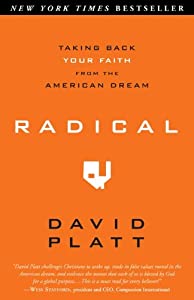I've got a few thoughts over at Christianity Today about the "radical" subcurrent of American evangelicalism. Only by "few" I mean 3000 words worth and by "subcurrent" I mean "tidal wave."
Login to read more
Sign in or create a free account to access Subscriber-only content.
Topics:
